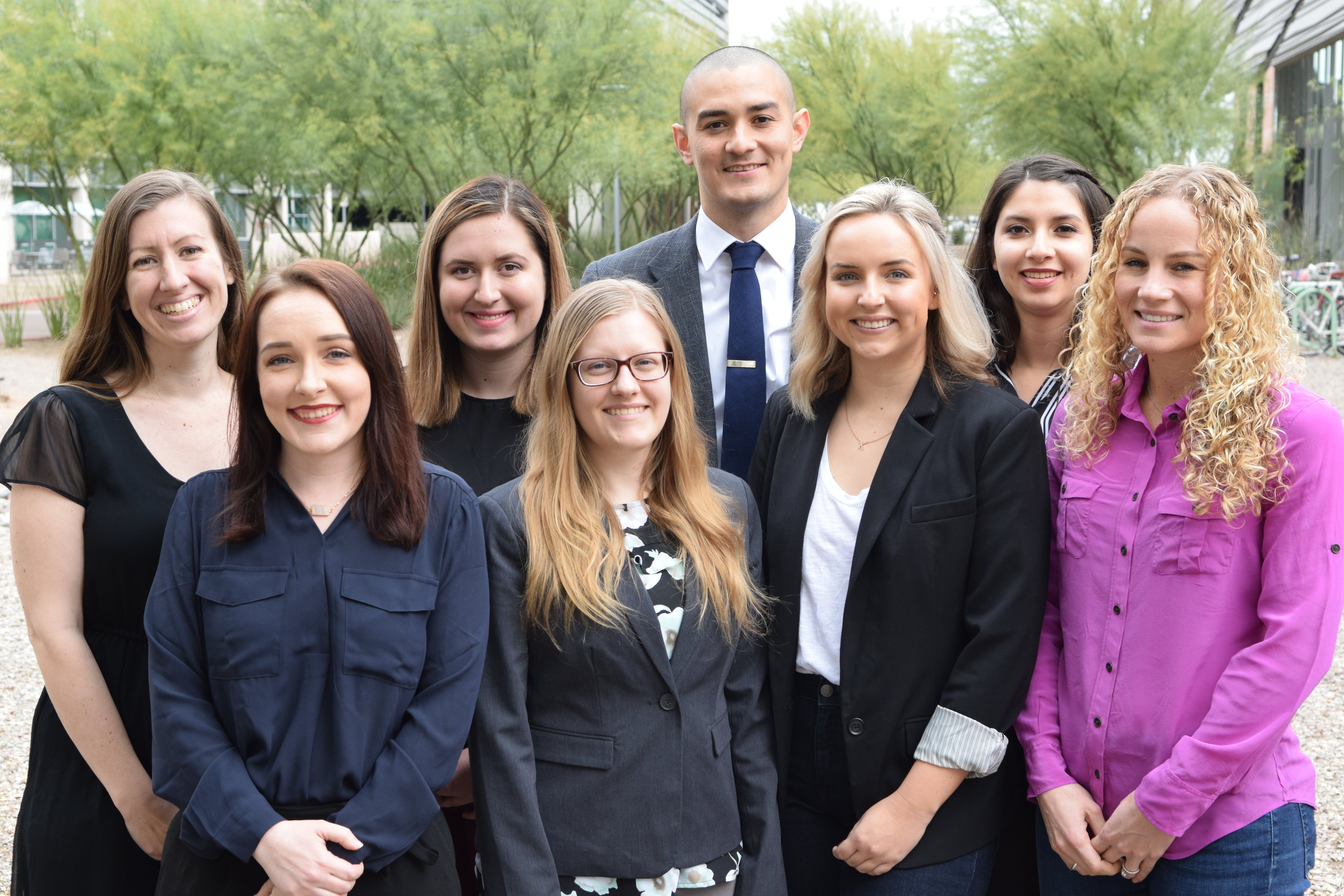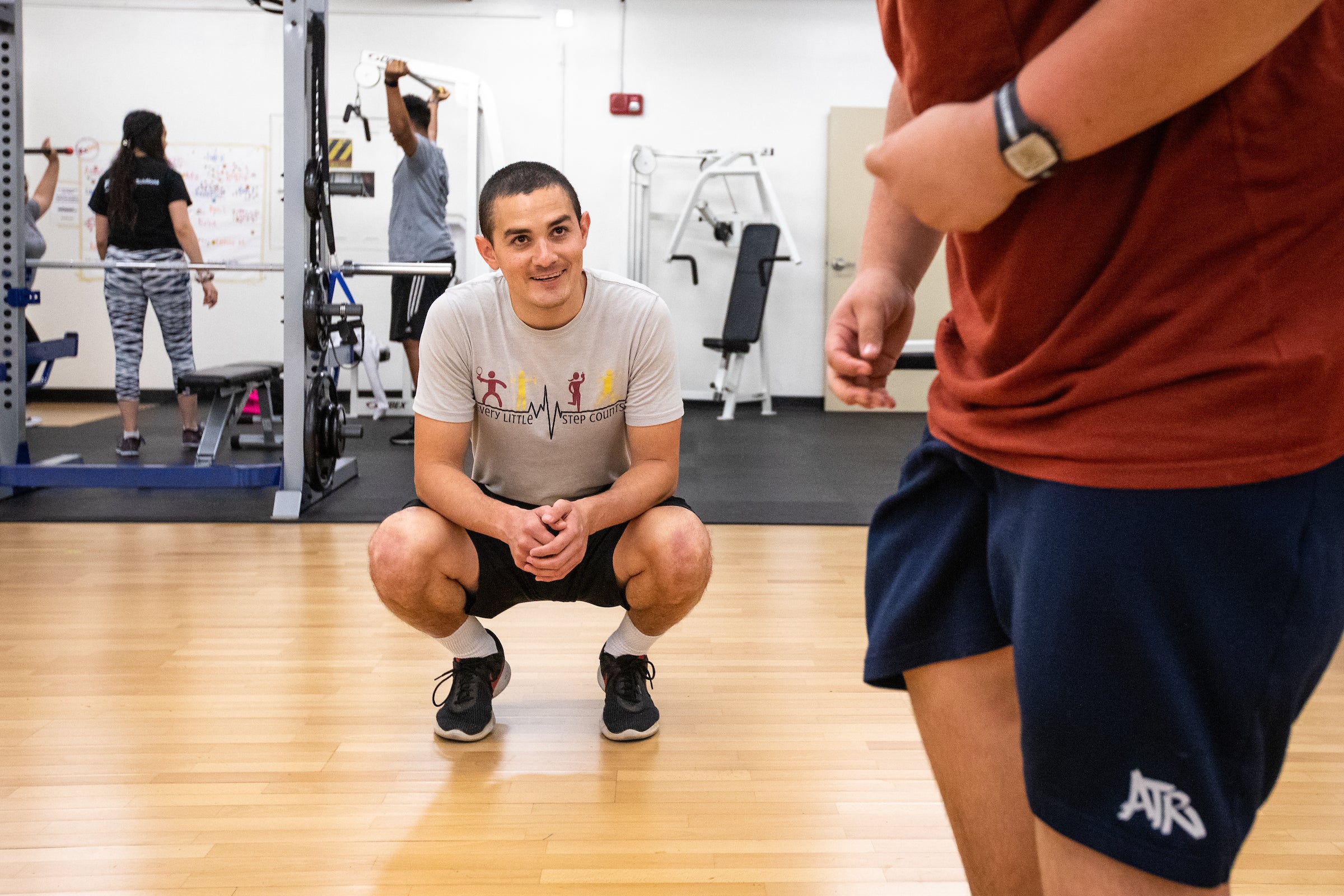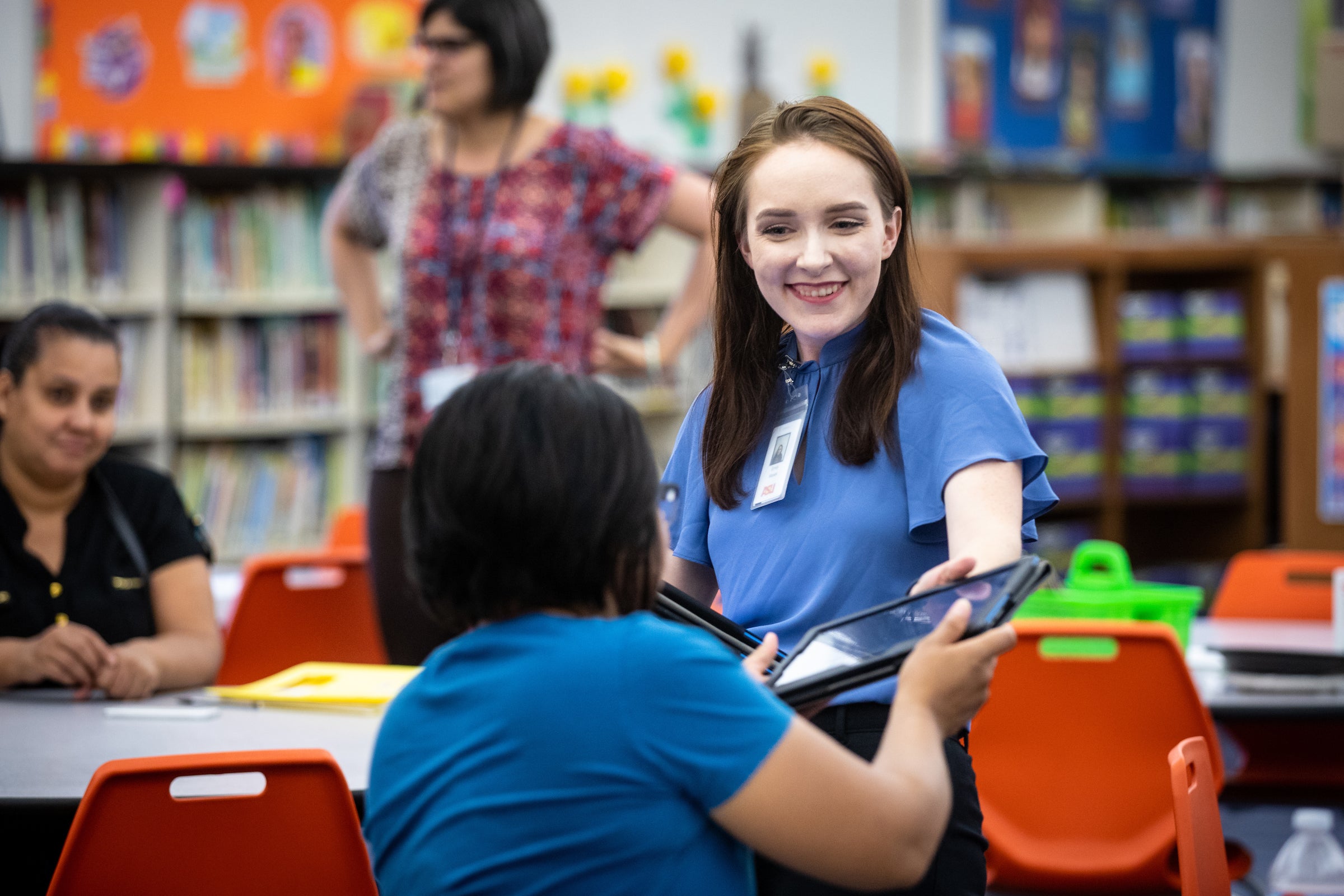$1M-plus grant to College of Health Solutions targets maternal and child nutrition

You are what you eat. But first, you are what your mother eats. And it wasn’t that long ago when no one blinked an eye at a pregnant woman sipping a cocktail. Nowadays, a growing body of research suggests that what women eat while they’re pregnant can affect their child’s health across their entire lifespan.
Despite this knowledge, there is still a dearth of well-trained health care professionals in the field of maternal and child nutrition, especially in the Western United States, said Meg Bruening, associate professor in Arizona State University's College of Health Solutions.
It’s why she jumped at the chance to apply for a grant from the Maternal and Child Health Bureau to bring the Translational Training, Education and Leadership Program in MCH Nutrition and Childhood Obesity Prevention, otherwise known as The TRANSCEND Program, to ASU.
“There aren't a lot of experts in maternal and child nutrition,” said Bruening, a former trainee during her graduate years at the University of Minnesota who now serves as director of the program at ASU. “And nutrition during early life — although I feel like it's never too late to make behavior change — predicts health outcomes and prevents chronic disease later on in life.”
The $1 million-plus grant will provide funding for five years to support College of Health Solutions graduate students interested in maternal and child health as it relates to nutrition. Funding began last July and is currently supporting seven trainees at ASU — two doctoral students and five master’s students. Six more slots will be available this fall for students enrolled in a College of Health Solutions graduate program.
The TRANSCEND Program has been around for more than two decades, and besides ASU, it is being funded at seven other sites across the nation: Tulane University; University of Minnesota; University of California, Los Angeles; University of California, Berkeley; University of Tennessee; University of Alabama at Birmingham; and Baylor College of Medicine.

ASU College of Health Solutions Associate Professor Meg Bruening (far left) with the first cohort of ASU TRANSCEND Program students. Photo courtesy of College of Health Solutions
All the sites work closely together with the goal of preparing graduate students to be leaders in the field of maternal and child health and nutrition. Trainees interact through a peer network in which they hold monthly calls to discuss shared projects and interests, and take turns blogging about their experiences online. They also get together for an annual meeting. This year’s took place in Washington, D.C., where trainees attended talks, networked and made a visit to the Hill for a policy-themed day.
The program aims to train students in 14 core competencies that include leadership; family-centered care; and policy and advocacy, among others. At ASU, the College of Health Solutions administers those core competencies through two new coursesThese courses are open to students of any major. and a research project for which students are matched with a faculty member from disciplines across ASU who are focusing on maternal and child nutrition.
“The idea is to provide training across the translational spectrum,” Bruening said.
As far as student outcomes, by the end of the first year, students will have a research manuscript ready to submit for publication in academic journals, and travel will be provided for them to present their research at national conferences. Over the course of the program, they will also prepare a two-minute mock testimony they will present to legislators and experts in the field and gain experience working on a policy brief.
In addition to the student training component of the program, there is a continuing education component, in which faculty at the College of Health Solutions provide training to current professionals in the field, as well as a technical assistance component, in which college faculty provide assistance to state agencies and local health departments.

Exercise and nutritional sciences doctoral student Armando Pena cheers on kids participating in a diabetes prevention program geared toward Latino youth. Photo by Charlie Leight/ASU Now
One thing the TRANSCEND Program is eager to address is a lack of representation in maternal and child health and nutrition.
“We need more diversity in the field to better impact health outcomes,” Bruening said.
To that end, there is an effort to recruit students from underrepresented communities and to focus their research on vulnerable populations.
Exercise and nutritional sciences doctoral student Armando Pena grew up in Somerton, a city near Yuma, Arizona, only a few miles from the U.S.-Mexico border that is roughly 97% Hispanic. He’s working with Edson College of Nursing and Health Innovation Associate Professor Gabriel Shaibi to research behavioral interventions for obese Latino youth at risk for diabetes.
Before he applied to be a part of the TRANSCEND Program, Pena did most of his academic work in lab settings.
“I wanted to find a way to apply my clinical lab skills in the real world,” he said. “This helps me meet my academic goals of pursing research and science, and it also helps me reach my more personal goals of helping my community.”
While his work as a master’s student focused mostly on adults, Pena says the TRANSCEND Program opened his eyes to a whole new field of possibilities. In particular, a lecture on breastfeeding left a deep impact on him, causing him to shift his focus to mother-to-infant health outcomes.
“If it weren’t for this program, I probably wouldn’t have the career path that I have now,” he said.

Nutrition master’s student Emily Masek passes out tablets for parents in a nutrition education program to take surveys. Photo by Charlie Leight/ASU Now
Nutrition master’s student Emily Masek had a similar realization through her work with a substance abuse prevention and nutrition education program targeted at parents of middle-school children.
“I've never really worked with an adolescent population, before but this has really informed me about how important adolescence is for starting to build those good health behaviors,” she said.
The curriculum for the program was adapted from one that focused solely on substance abuse prevention to one that includes nutrition education, with the idea being that parents take what they learn and teach it to their children.
Under the guidance of College of Health Solutions Associate Professor Sonia Vega Lopez, Masek and others are measuring the effectiveness of the program through dietary questionnaires given to both the parents and their children. They also perform home visits to collect other data such as height, weight and blood values.
“A lot of existing intervention models either directly impact the kids or directly impact the parents,” overlooking the opportunity that leveraging the parent-child connection provides to empower parents to continue to educate and be a knowledge resource their children, even after the intervention is complete, Masek said.
In the future, Bruening is looking to build a partnership with a similar program at the University of Arizona called Leadership Education in Neurodevelopmental and Related Disabilities (ArizonaLEND), which is a leadership training program that prepares the next generation of policy makers, faculty, clinicians and researchers to lead the maternal and child health workforce.
There are also plans to develop an online fellowship program for existing professionals in maternal and child health leadership.
Overall, the TRANSCEND Program at ASU is a win-win for students and the community alike, Bruening said: “The program provides hands-on experiential learning so that the students can understand and have exposure to what the community is facing when they try to intervene around nutrition-related issues. It also provides the leadership training for them to be able to dive in right away once they graduate and help move the needle faster.”
Top photo courtesy of Pixabay
More Health and medicine

College of Health Solutions alumnus named Military Medic of the Year
By Keri Hensley and Kimberly LinnJonathan Lu has looked out for the health of his fellow military service members his whole career, starting with his role as a combat medic in the U.S. Army.Driven by…

ASU, Mayo Clinic forge new health innovation program
Arizona State University is on a mission to drive innovations that will help people lead healthier lives and empower health care professionals to develop novel new health solutions. As part of that…

Innovative, fast-moving ventures emerge from Mayo Clinic and ASU summer residency program
By Georgann YaraIn a batting cage transformed into a custom pitching lab, tricked out with the latest in sports technology, Charles Leddon and his Mayo Clinic research teammates scrutinize the…